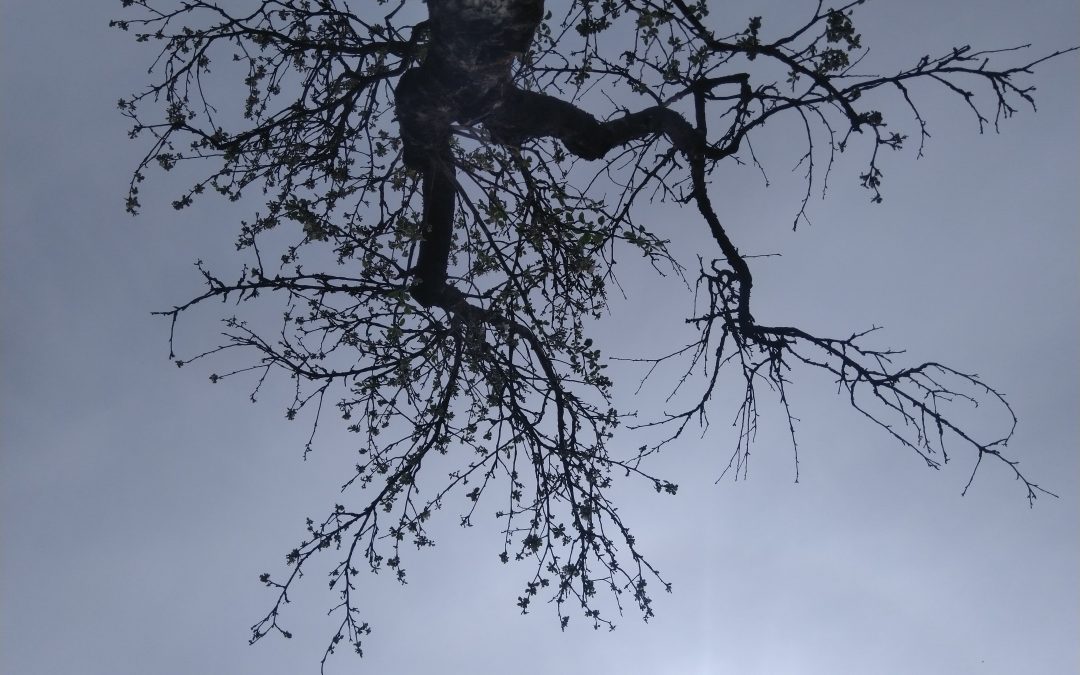One of the things that has been on my mind is the question what “normal” really means. I have to admit that I’ve had reactions to the phrases “back to normal” and “returning to a new normal” that ranged from slight irritation to frustration as politicians kept repeating them like a mantra over the past couple of weeks.
I used my emotional response as a starting point for my own exploration of normal. And I’ve been questioning and researching the term since.
Questions can open new ways
The goal is not so much to find answers and knowing the one right way (for myself) as rather the idea of asking questions about my normal that makes me more awake in the present and lets me choose fresh and create new spaces for experiences.
The motto underlying my explorations are often “Questions are the answers”.
I believe that asking relevant questions can be a way to something new. I don’t think we need answers to everything, but starting to ask questions can open up new spaces and allows me to explore and find out for myself what I think about a subject and or how culture has influenced my thinking about a subject or situation.
Sometimes I do find answers. And they might be fundamental and feel true for a long time or be good as reference points for a short time until life changes again and I need to reconsider.)
Here’s a couple of aspects of “normal” that emerged in the process:
Normal implies comparison
When we speak about normal, there is usually comparison at play. Me to others, nations with each other, now to the past, etc.
Comparison can never lead to a balanced state and never to a state where everyone is allowed to be their individual self in community, because comparison comes with opinion and judgement. The brain wants to know what’s better or right.
Since I cannot be somebody else and I can also not go back in time, there’s no point in spending my time thinking about “back to normal”. Instead, I can ask myself the “normal” I would like to live in now and the normal I can contribute something to in the given circumstances.
“Back to normal” or “Back to a new normal”
This continues from the first observation that there’s little point in comparing now to the past, as I cannot move back in time. Instead of feeling nostalgic about the past, I can question what kind of normal I’d like to live in.
Normal, according to the dictionary
The online etymology dictionary says:
1500, “typical, common;” 1640s, in geometry, “standing at a right angle, perpendicular,” from Late Latin normalis “in conformity with rule, normal,” in classical Latin “made according to a carpenter’s square,” from norma “rule, pattern,” literally “carpenter’s square,” a word of unknown origin (see norm). Meaning “conforming to common standards or established order or usage, regular, usual” is attested from 1828 but probably is older than the record [Barnhart].
So normal means in conformity with rule. What are our rules right now? What is different from before is that we have new rules. Which of those rules serve us now? And for how long?
What do you want to be your normal?
Maybe this special out-of-normal situation is a good moment to ask ourselves:
What do I want to be my normal?
And if you don’t use comparison to what’s normal in my culture, socio-political background or family?
And what if we replaced normal with natural?
What feels natural to you? What if you could choose your own rules of normal based on naturalness? What would normal look like if normal would make you feel at ease, joyful, curious about life?
- How many working hours?
- How much freedom in movement?
- How much time in front of a screen?
- How much time with dear ones?
- How much time for yourself?
- How much time creating?
- How much time consuming?
- How much time for being, not doing?
How much time outdoors?
Those are some questions, I’d like to leave you with. Maybe you feel like exploring too. Maybe you have some other priority that you want to give your attention to.
Live intentionally and enjoy the moment –
Daniela


0 Comments